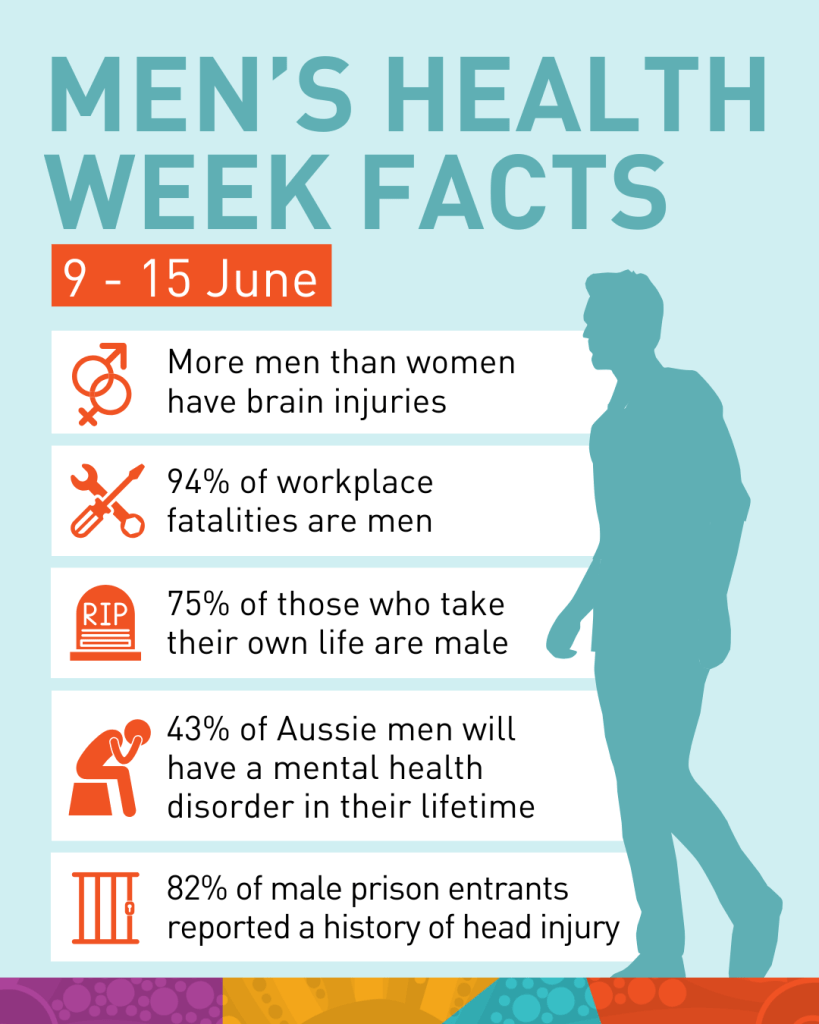Why men with brain injury can struggle in silence

Men’s Health Week is a reminder to pause and reflect on the health challenges facing the men in Australia. For some men living with a brain injury, asking for help doesn’t always come easy.
Whether from sport, work, violence, or accidents, men are more likely to sustain a brain injury. Yet, they’re also less likely to access support, speak to a GP, or acknowledge that something’s changed, especially when the effects are cognitive or emotional rather than physical.
The pressure to power through
Many men feel they need to stay strong and in control. This can make it hard for them to recognise when they need help or to reach out for support. (Based on findings from Seidler et al., 2016). After a brain injury, common symptoms like fatigue, memory problems, mood swings, or difficulty concentrating can be misread as personal weakness rather than the neurological effects of their injury. The result? Many men continue on without a diagnosis, without rehabilitation, or without support. This can sometimes be for years.
The hidden cost of silence
When brain injury symptoms go unrecognised and untreated, they can contribute to:
- Relationship breakdowns.
- Job loss or underperformance.
- Risky behaviours or substance use.
- Poor mental health, including depression.
- Contact with the criminal justice system.
For some men, it’s not until life becomes unmanageable that help is finally sought and even then, brain injury might not be identified as the underlying cause.
Changing the conversation
We need to shift the message from “tough it out” to “speak up and stay strong.”
Asking for help or support is not weakness, it’s wisdom. It’s a vital step in recovery and long-term wellbeing. Whether you’re living with a diagnosed brain injury or experiencing unexplained cognitive or emotional changes, reaching out is a sign of strength.

How Synapse can help
Synapse provides information, advice, and advocacy for people living with brain injury across Australia. We understand the hidden impacts, the stigma, and the barriers to accessing support, especially for men. This Men’s Health Week, let’s look out for each other. Ask the question. Start the conversation. And remember you’re not alone, and it is ok to ask for help.
Support is available.
- Call Synapse on 1800 673 074.
- Lifeline on 13 11 14
- Yarn up on 13 92 76
- MensLine on 1300 78 99 78
International Men’s Health Week takes place from Monday, June 9, to Sunday, June 15, 2025.
See our previous article on Men’s health. For more tips on how to manage your health you can go to our website here.
Sources:
- The role of masculinity in men’s help-seeking for depression: A systematic review (Accessed May 2025): https://www.sciencedirect.com/science/article/abs/pii/S0272735816300046
- Traditional Masculinity and Men’s Psychological Help-Seeking: A Meta-Analysis (Accessed May 2025): https://onlinelibrary.wiley.com/doi/10.1002/ijop.70031